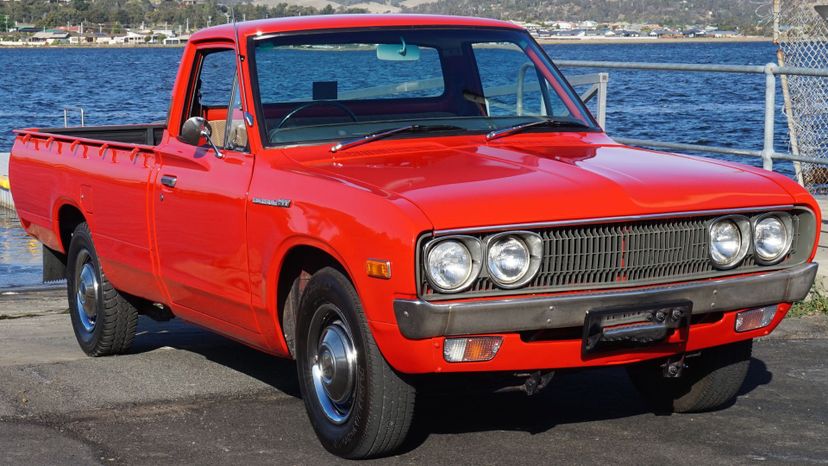
About This Quiz
Can you tell the difference between an F-150 and a Silverado, or distinguish a Dodge Ram from a Honda Ridgeline using only a single image? Think you can identify classic trucks like the Chevy C/K or the Ford Model TT? If you think you've got what it takes to tell one iconic truck from the next, prove it by acing this quiz!
It's no secret that men (and women) love their trucks - and many are willing to pay a massive premium for the privilege of a pickup bed. Kelley Blue Book's report on new car pricing as of December 2017 revealed that the average new mid-sized car in the U.S. costs $25,749 - while an equivalent mid-sized pickup costs a whopping $32,562. Those seeking an even bigger bed are shelling out an average of $46,601 to splurge on a full-size truck.
But what is it about a pickup that gets drivers to open their wallets with abandon? Sure, it's the ability to haul a heavy load, transport trash to the dump or help a buddy move, but it's also something more; pickups have an allure that goes well beyond what they can carry - it's the lyrics to a classic country song, riding high over the open road, a symbol of freedom, strength and power.
If we show you pictures of some popular pickups, do you think you can identify the make and model? Take our quiz to find out.
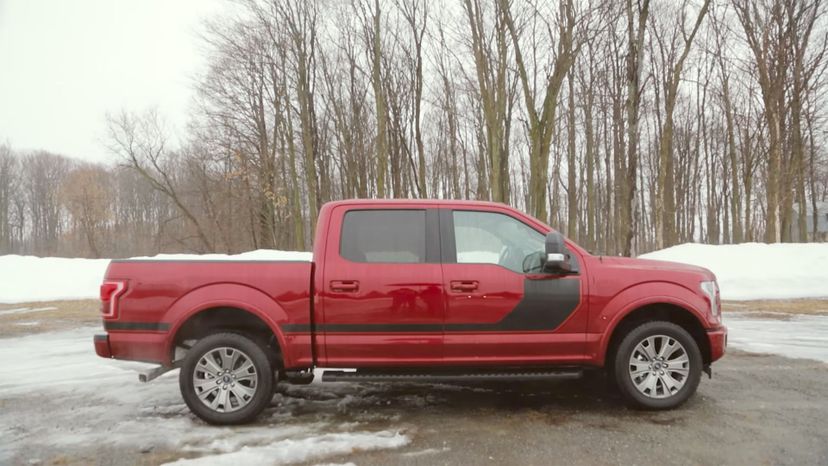
In production since 1948, the F-150 is Ford's light- and medium-duty truck model. It became the best-selling vehicle of any type in the U.S. in the '80s, and also ranks as the top-selling vehicle in Canada. A 2015 13th generation redesign cut the weight of the truck by a whopping 750 pounds.
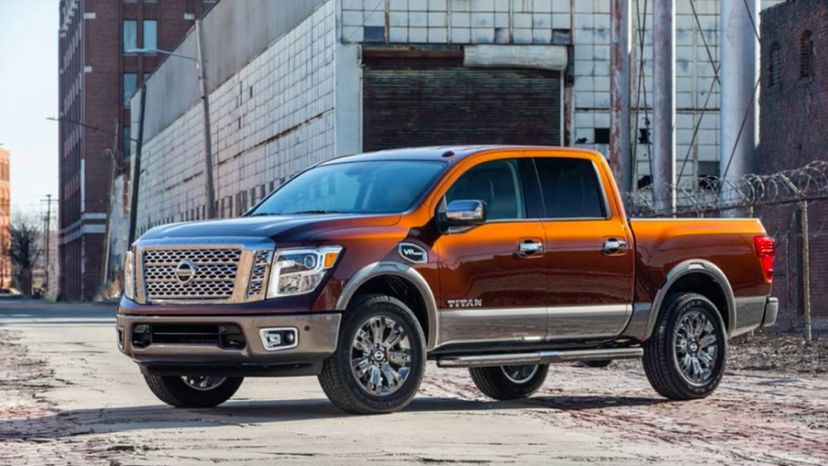
Nissan named its full-size Titan pickup after a group of divine beings from Greek mythology known as the Titans. Introduced in 2004, this truck got a major overhaul in 2015. The redesigned Titan was built onto a heavy-duty frame designed for the brand's commercial vehicles, given greater power and towing capacity, and an optional diesel engine helps to cut fuel costs.
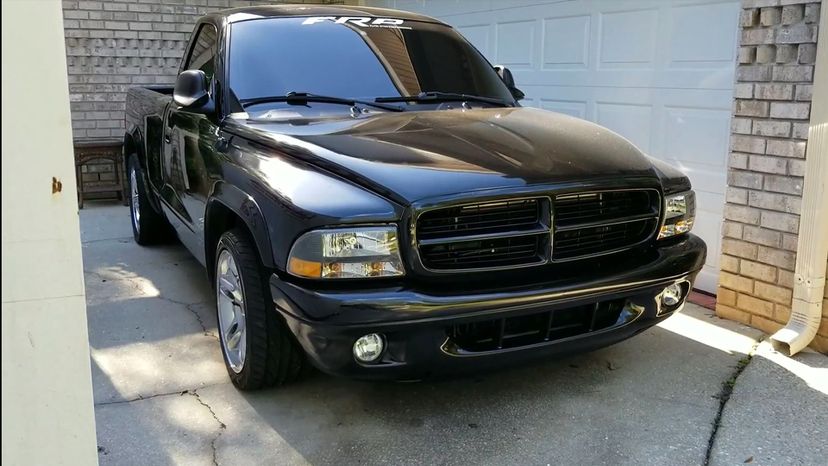
Dodge produced the compact Dakota from 1987 to 2009, then sold the vehicle as the Ram Dakota for another two years through 2011. Generation one was a simple two-door, while the third generation was a four-door built on the Dodge Durango SUV platform.
Advertisement
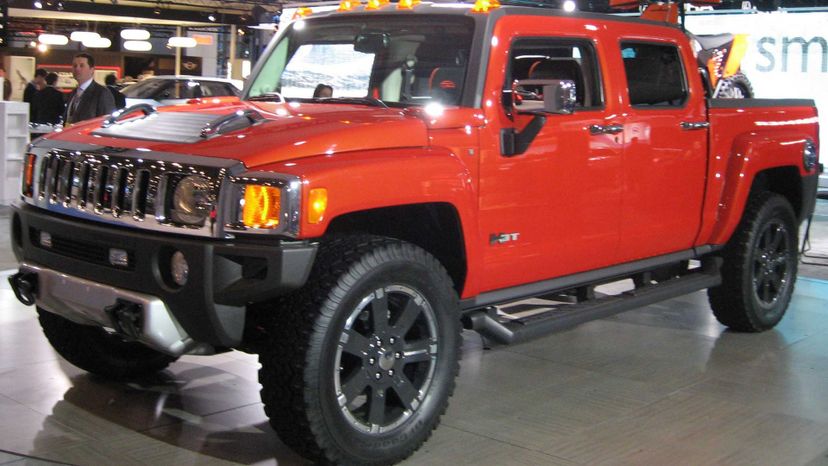
The military-inspired Hummer was all the rage in the '90s and '00s, so it was no surprise that the company eventually made a pickup model. The H3T was produced for just a few years, between 2009 and 2010, and offered a short bed with a crew cab and built-in storage.
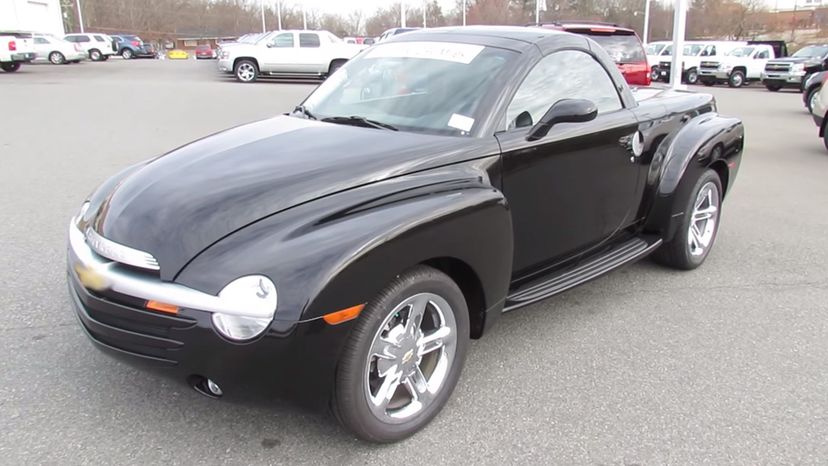
Chevy's SSR was a convertible pickup with a retractable hardtop. This two-door truck, which was produced only from 2003 to 2006, had retro styling reminiscent of '40s and '50s Chevy pickups. Sales were disappointing and the truck was soon discontinued.
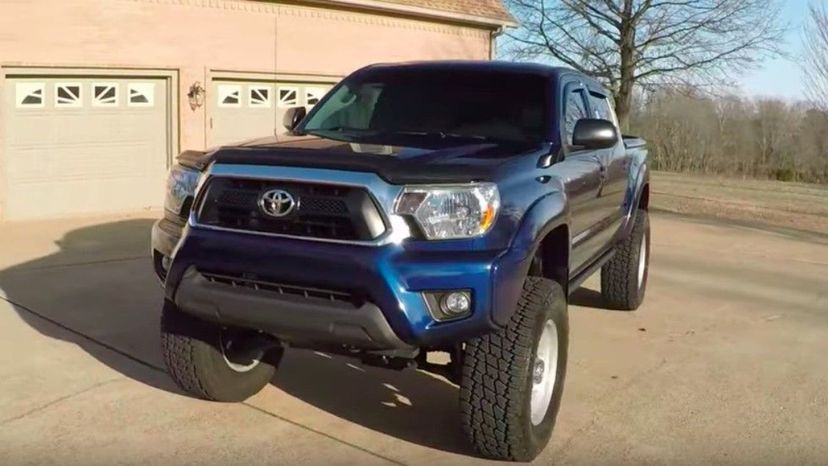
Toyota replaced its popular Hilux truck with the compact Tacoma pickup in 1995. A generation-two redesign in 2004 transformed this truck to a mid-sized model, while the third generation release in 2015 got a whole new style inspired by the 4Runner.
Advertisement
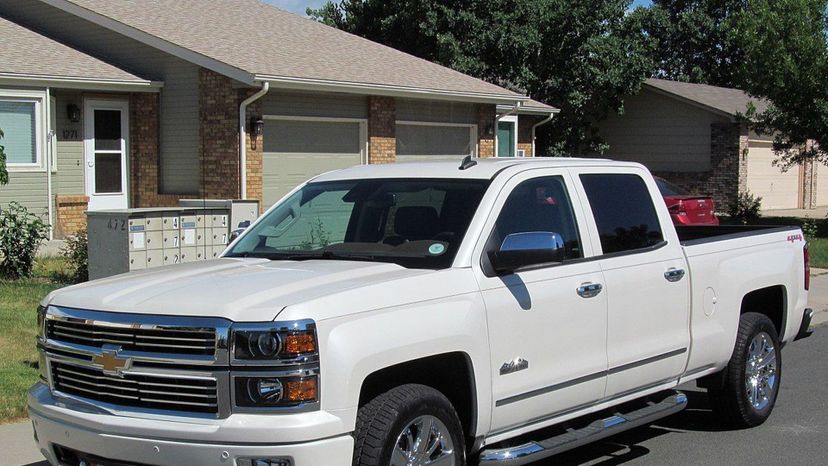
The Chevy Silverado name was first used for trim packages on various Chevy vehicles. It became an independent full-size, heavy-duty pickup model in 1999. The 2019 production run represents the fourth-generation Silverado design and comes with high-end trim options known as "Trail Boss" and "High Country."
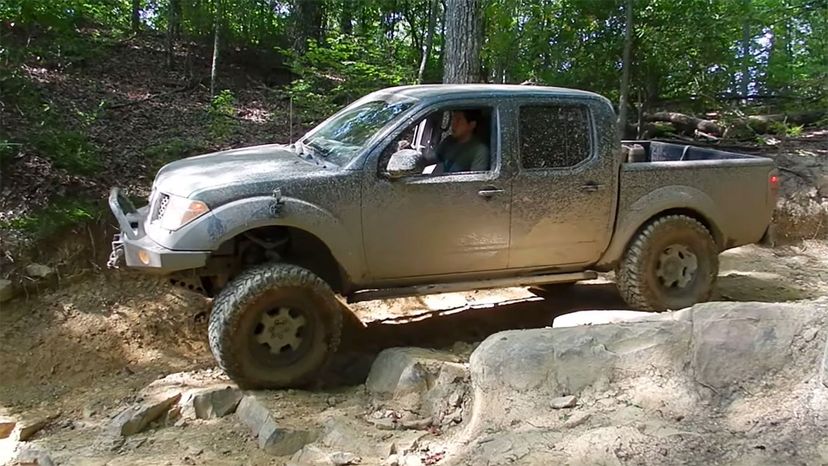
Nissan launched the compact Frontier pickup in 1997. It was available with single and king cab options and a 1999 Desert Runner edition came with a supercharged V6 and a lifted body.
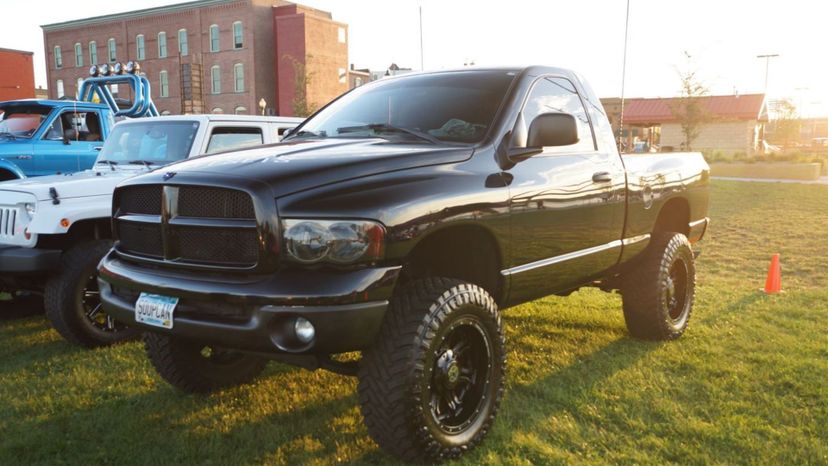
The Ram pickup was sold under the Dodge name from 1981 through 2011 when it was spun off to become a brand all its own. The fourth generation of this iconic pickup came out in 2009 and came with new engine and suspension offerings and a feature called "Rambox" - which allows for secure storage built into the walls of the truck bed.
Advertisement
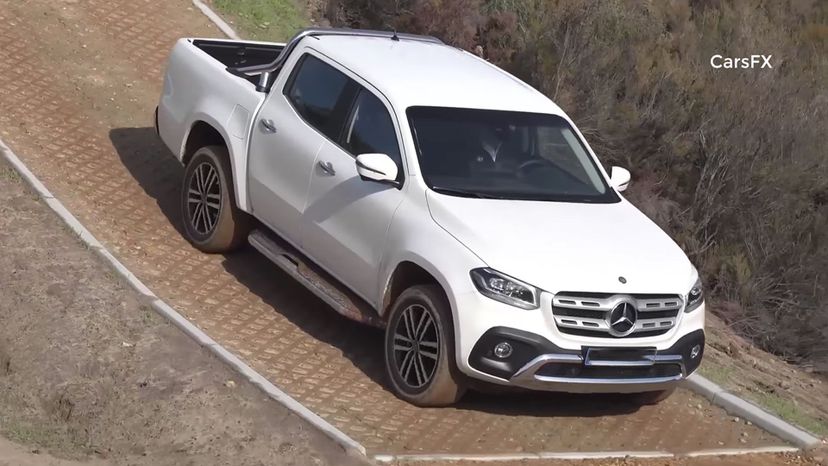
Mercedes' first entry into the pickup market came in July 2017 with the introduction of the X-class. Models range from the X-200 six-speed manual transmission base to the high-end X-350 with a seven-speed automatic transmission.
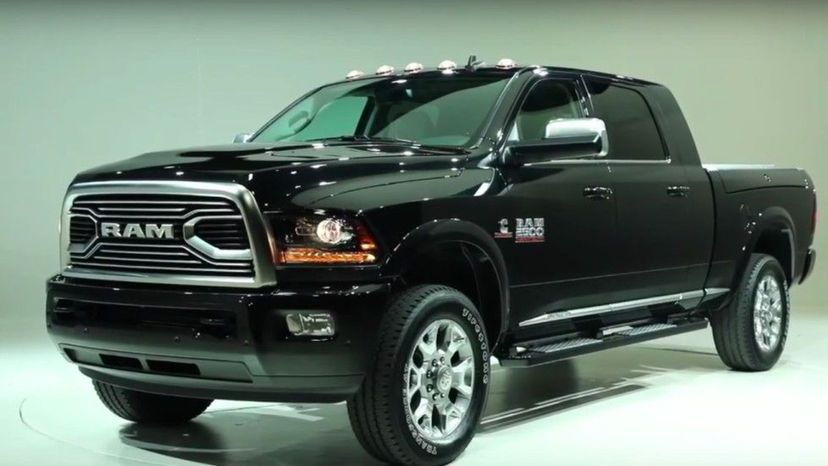
Dodge began referring to its 3/4 ton pickups by the Ram 2500 designation in 1994. That was the same year the company introduced its much-celebrated 8.0 L V10 engine.
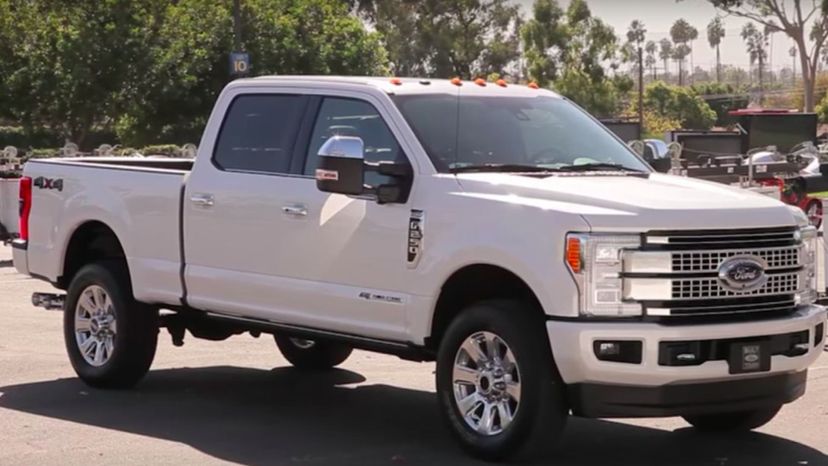
Ford began using the F-250 designation for its SuperDuty F-series trucks in 1999. These pickups are built on a separate chassis from the ultra-popular F-150 and come with both standard and diesel engine options.
Advertisement
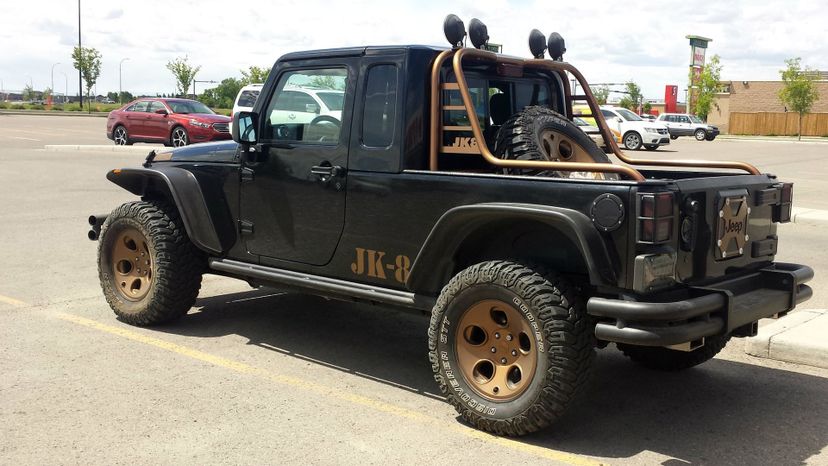
Jeep fans have been doing after-market pickup modifications to Wranglers for years, but Jeep didn't add a factory pickup option until 2019. They look like typical Wranglers, with an added bed on the back for hauling, and come with a stiff axle and ladder frame for off-roading.
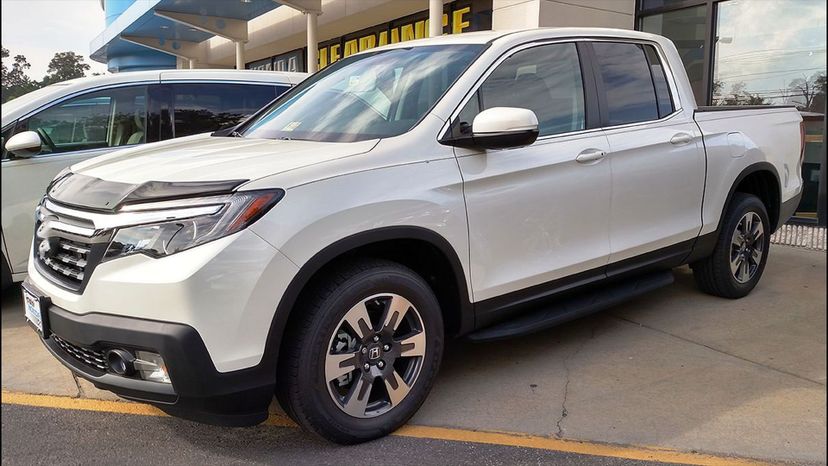
The sporty styling of the Honda Ridgeline has led many reviewers to describe it as a sport utility pickup or lifestyle truck. Introduced in 2005, this pickup kept its same unique style until a major redesign in 2017 resulted in a more traditional pickup truck appearance.
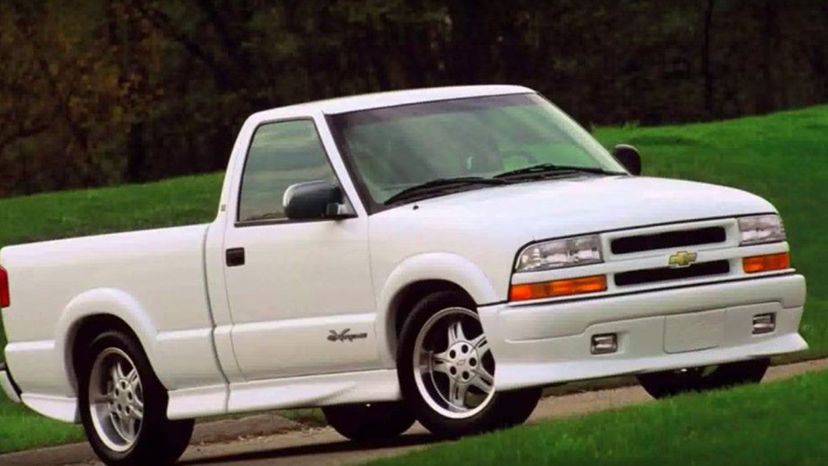
Chevy replaced its popular LUV pickup with the S-10 compact in 1981. Produced through 2004 for the U.S., the GMC versions of this truck include the base Sonoma and the higher-end Syclone.
Advertisement
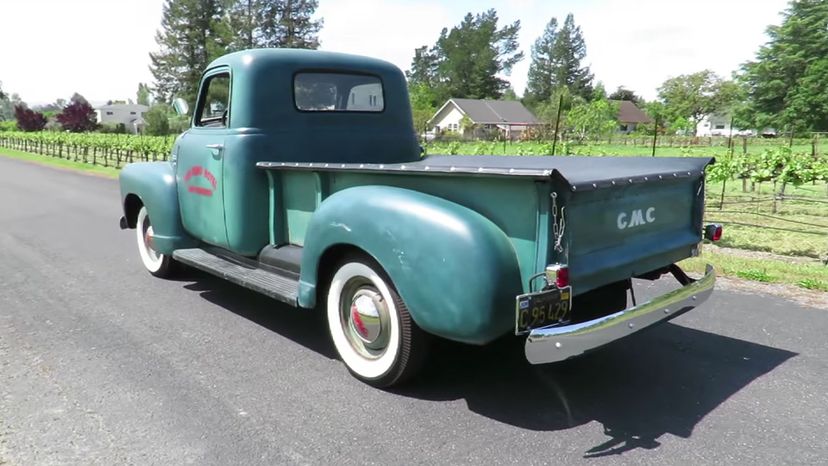
The GMC FC101 Half Ton came out after World War II and was the first pickup truck in the North American market with fully integrated headlights. It shared a similar style with other pickups of the time and featured a low, wide body and bold front grille.
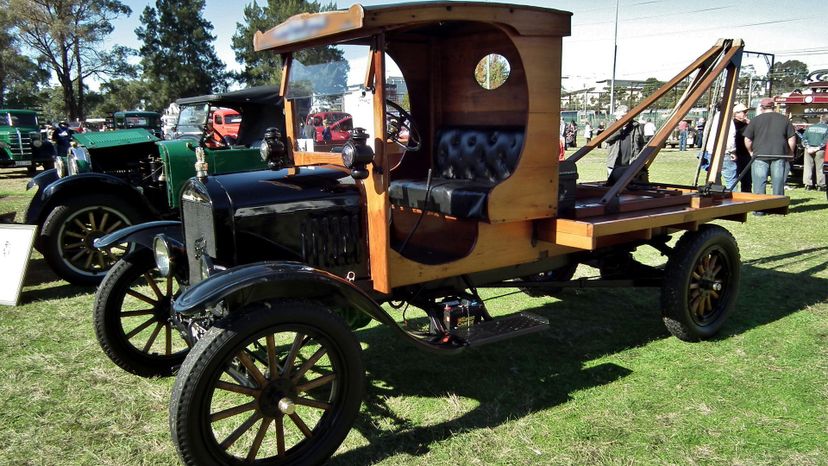
You've heard of the Model T, but what about the TT? This truck version of the classic Ford vehicle came out in 1917. That year, Ford made just three TT models and sold them for more than $600 each. In 1925, the company made 300,000 TT units, each with a price tag of around $325.
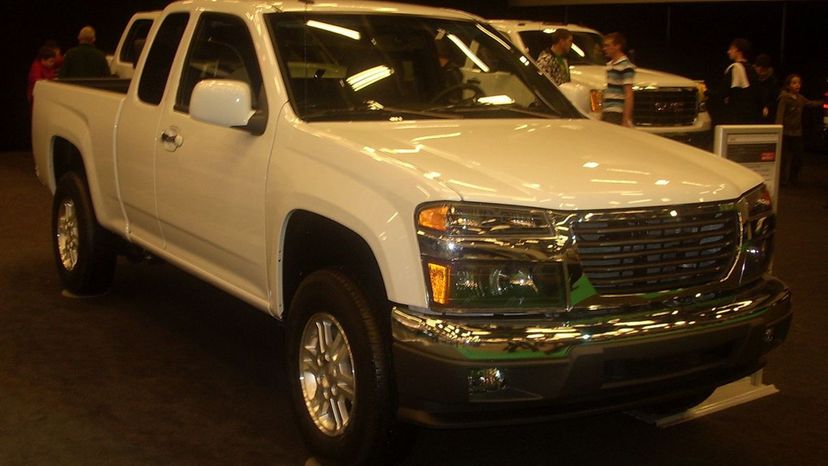
Think of the GMC Canyon as a sister vehicle to the Chevy Colorado. Introduced in 2003, this mid-sized pickup tends to be slightly pricier than the Colorado, but also comes with more impressive trim options, including the lux Denali package. The GMC Canyon is known for its superb handling and efficiency, as well as its powerful towing capacity.
Advertisement
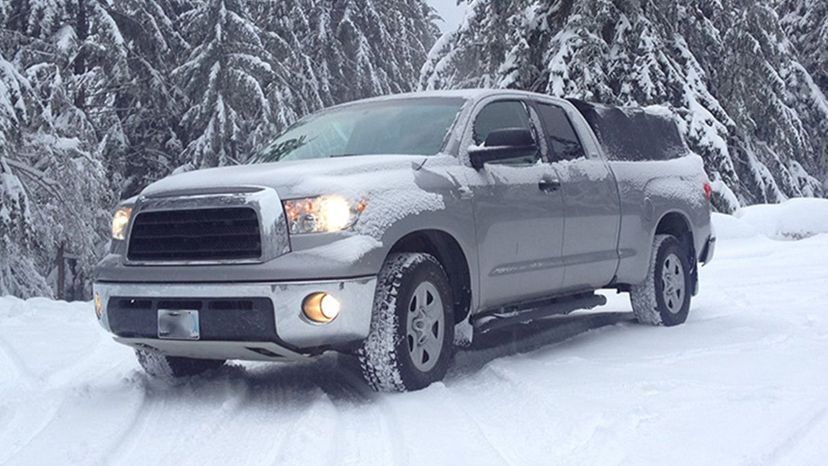
Toyota introduced the full-sized Tundra in 1999. This popular pickup offered both two-door standard and four-door extended cab options and was originally named the T-150. A major 2013 overhaul resulted in a remodeled interior and a tailgate with an added spoiler.
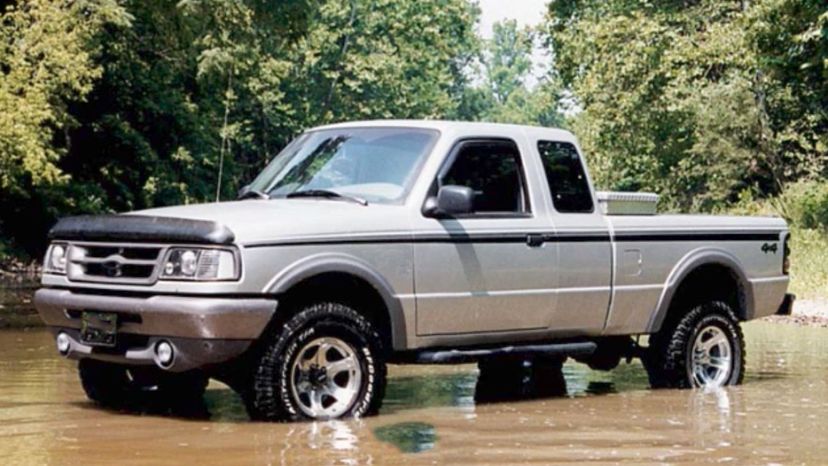
Ford used the Ranger name as a trim package for various models from the '50s through the '80s. By 1983, the Ranger had become an independent model - and Ford's first compact pickup. It was the best-selling small pickup in the U.S. from the '80s through the early '00s.
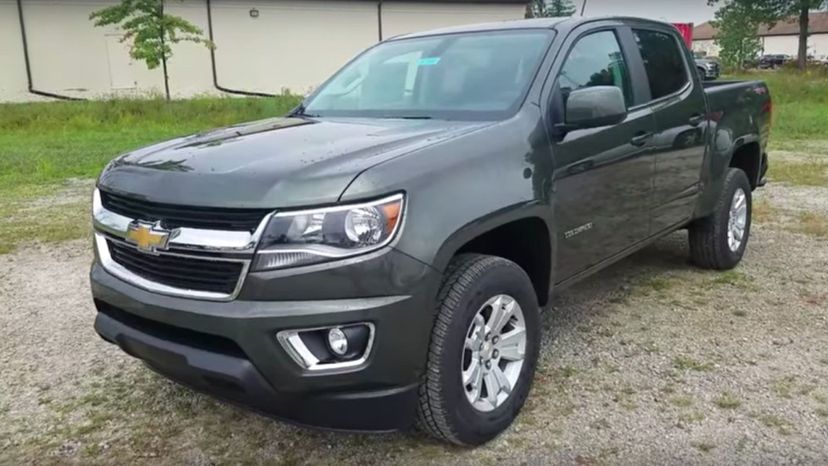
Named for the Centennial State, the Chevy Colorado came out in 2003 to replace the S-10 pickup. This mid-sized truck comes in both two-door standard and four-door crew and extended cab options. The Colorado is very similar to the GMC Canyon but tends to come with a lower price tag and fewer trim options.
Advertisement
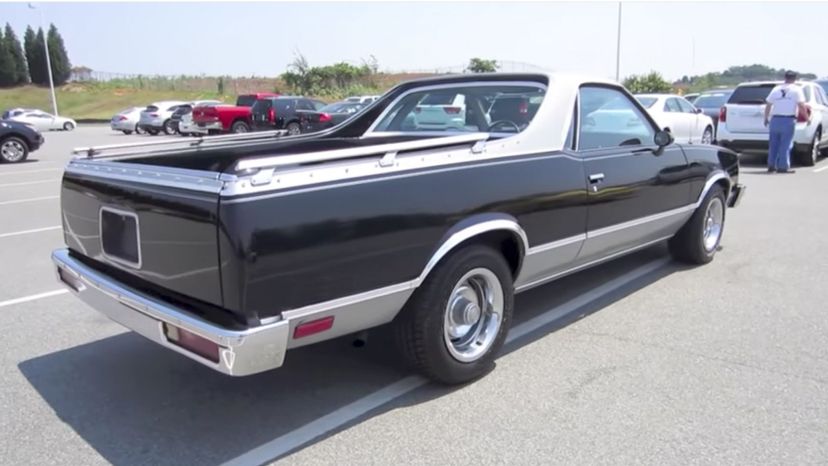
Is it a pickup or a muscle car? The Chevy El Camino combined the best of these two vehicle types into a single coupe utility. Inspired by the Ford Ranchero, the El Camino came out in 1959 and remained on the market through the late '80s.
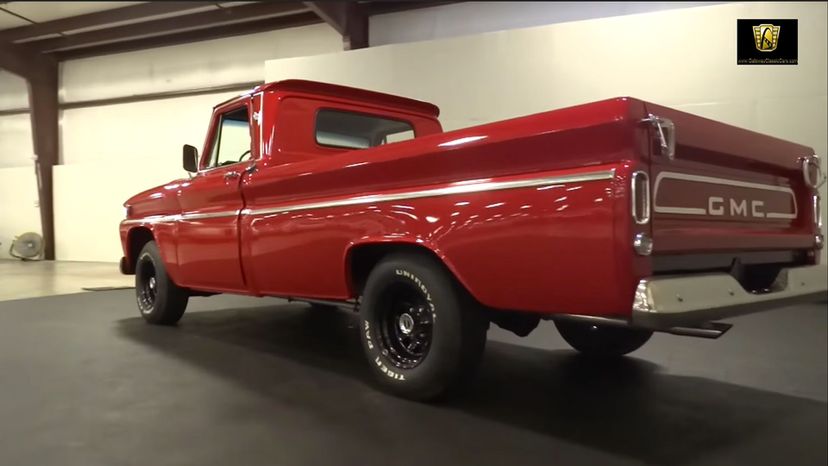
GMC stepped things up in the pickup market with the '60s Model 1000 Half Ton. It was the first GMC pickup with a hood the same width as the vehicle. This model also had a "pinched-waist" style body crease running around its entire width.
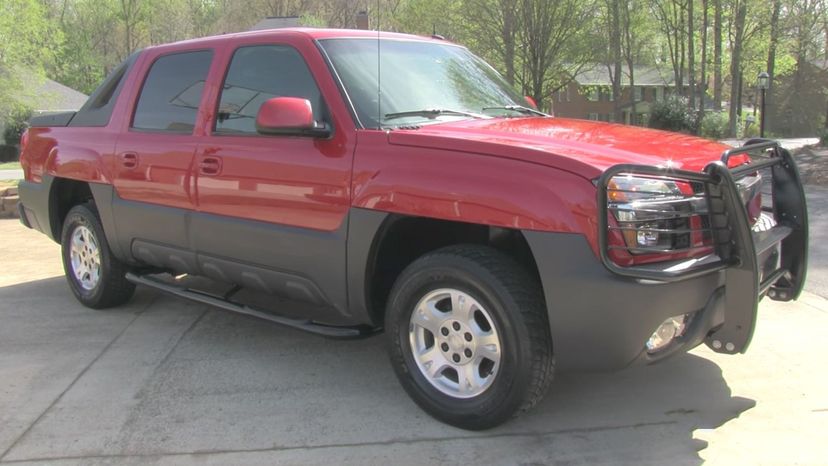
The Chevy Avalanche pickup shares a wheelbase with the Escalade EXT. Introduced in 2001, the early generation Avalanche models were easy to spot thanks to their gray plastic cladding. Chevy discontinued this pickup in 2013.
Advertisement
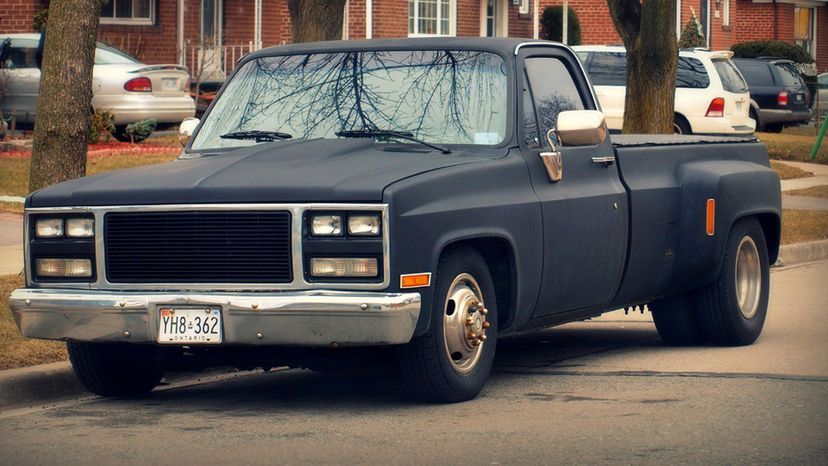
The iconic Chevy C/K line remained in production from 1960 all the way through 2002. Replaced by the Silverado and Sierra models at the start of the new millennium, these trucks used a simple naming system - "C" stood for two-wheel drive, while "K" stood for four-wheel drive.
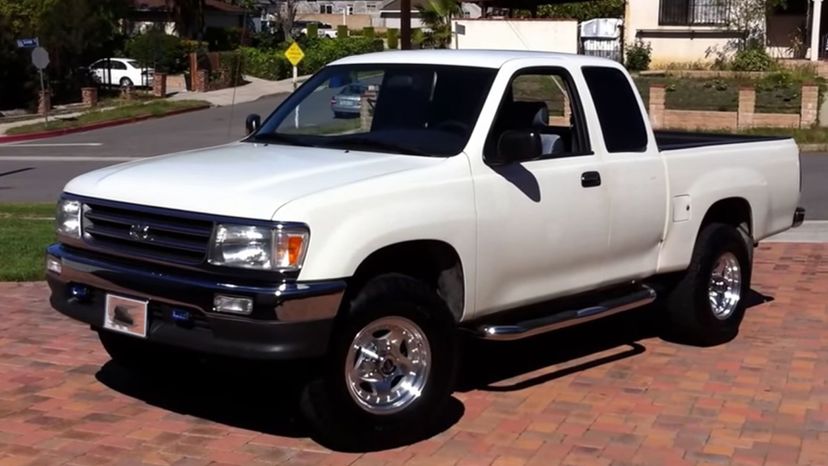
Toyota produced the mid-sized T100 between 1992 and 1998. Though it came with an eight-foot bed, it was one of the smaller American pickups of the period, a fact which Toyota hoped would make it popular with buyers looking for fuel efficiency.
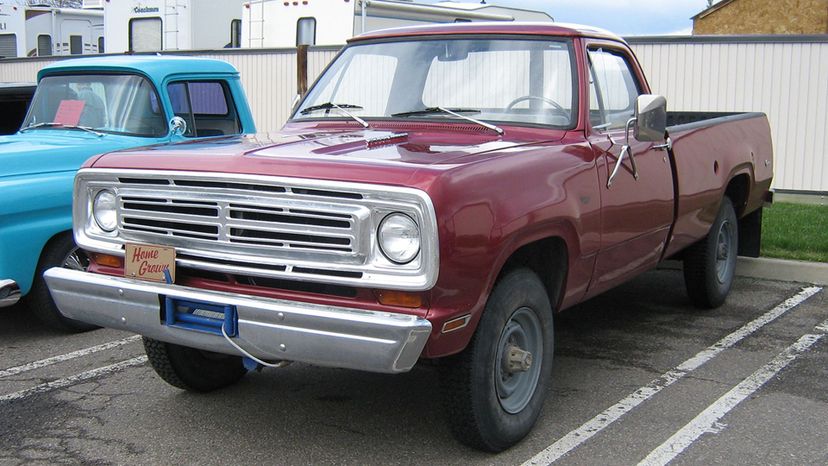
Dodge produced the Power Wagon four-wheel drive light-duty truck from 1945 all the way through 1981. This full-size pickup was inspired by Dodge military vehicles in WWII. Production ceased at the start of the '80s with the introduction of the Ram.
Advertisement
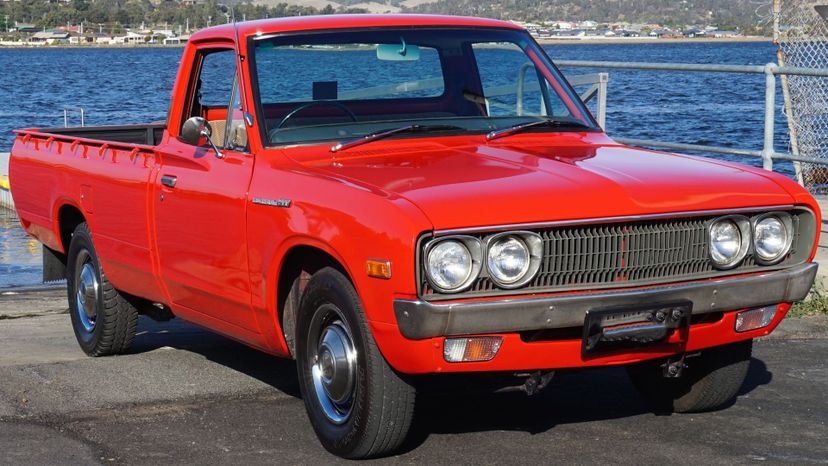
The Datsun 620 came in both two- and four-door models and was available from 1972 to 1979. This compact pickup was the first Datsun truck to offer a king cab option, which was available on '77 models.
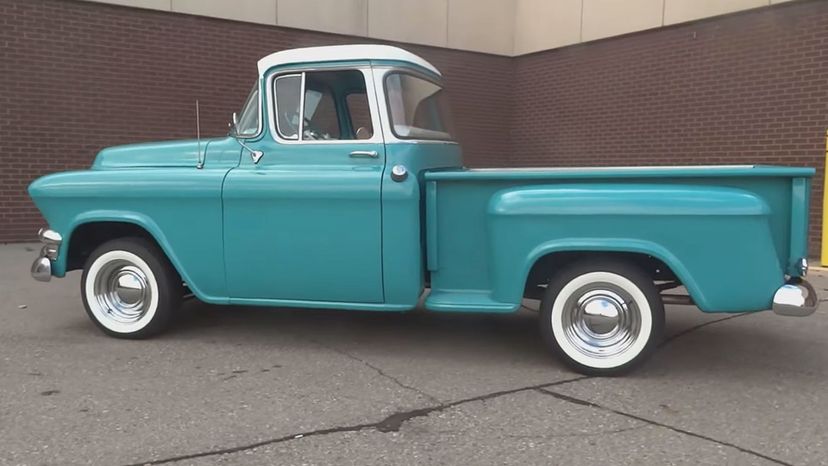
The 100 Series Deluxe was GMC's entry into the '50s truck market. This two-seat compact featured classic mid-century styling, with hooded headlamps and a panoramic glass windshield.
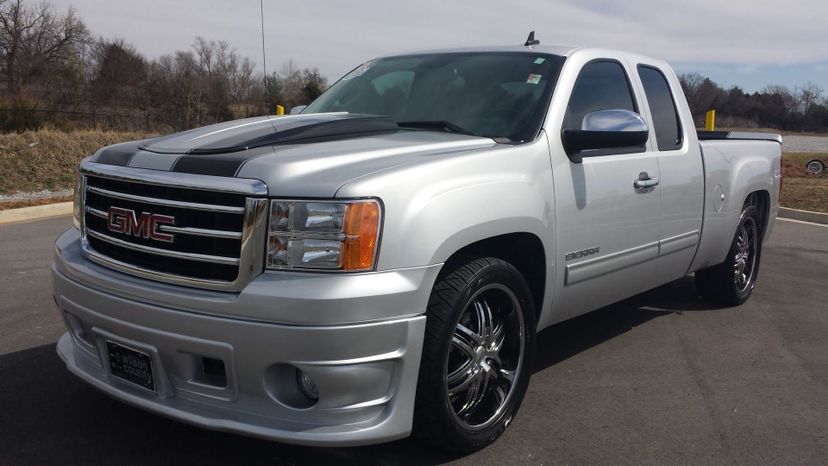
The GMC Sierra is a sister vehicle to the Chevy Silverado 150. The GMC version of this pickup comes with more lux trim options than the Silverado, as well as a higher MSRP. The 2018 redesign of the Sierra brought a carbon fiber bed, advanced camera system and a two-piece tailgate.
Advertisement
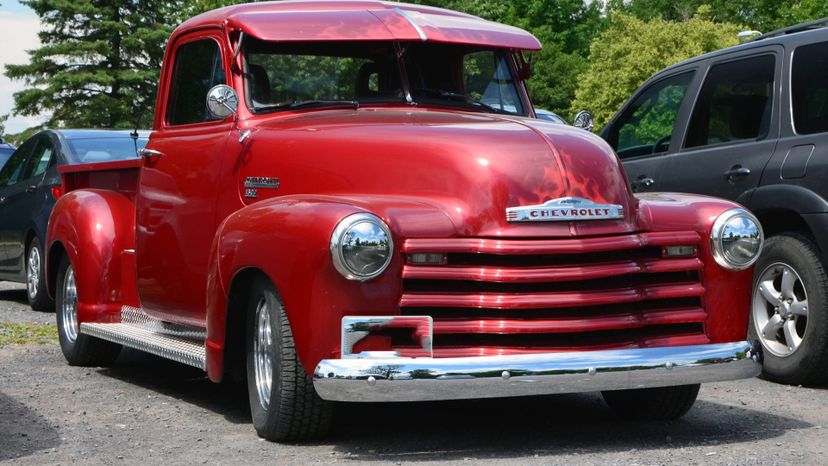
Chevy produced the Advance Design pickup line between 1947 and 1955 before replacing these models with the Task Force line. Early Advance Design models are easy to spot thanks to badges marked as "Thriftmaster" or "Loadmaster."
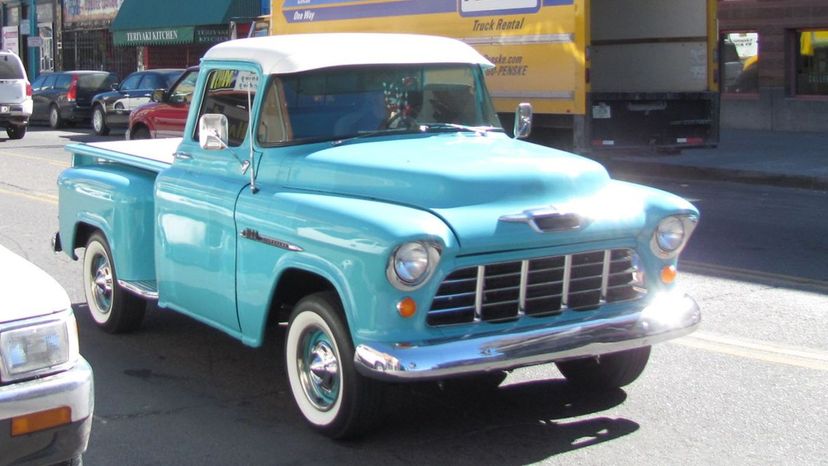
Chevy introduced the Task Force to replace the Advance Design pickup in 1955. The Task Force was the first pickup with a V8 and had a unique wraparound windshield that had never been seen before on a pickup at the time.
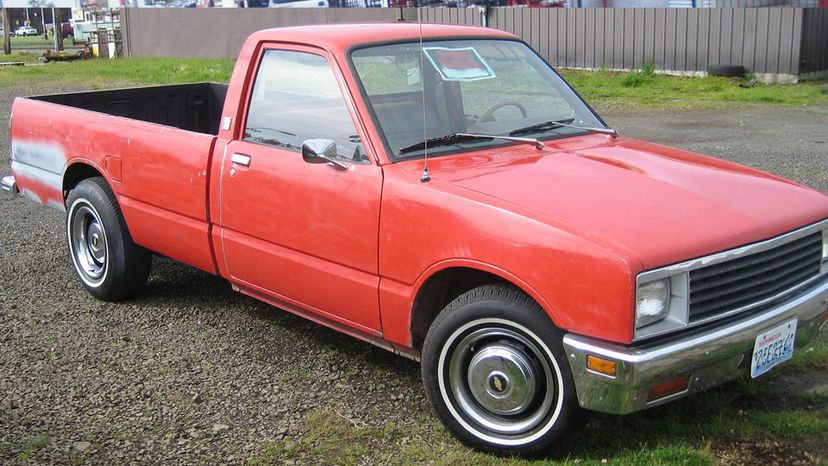
LUV is an acronym for "light utility vehicle." This rebadged version of the Isuzu Faster was sold in North America between 1972 and 1982 and offered a surprisingly strong payload for its size.
Advertisement
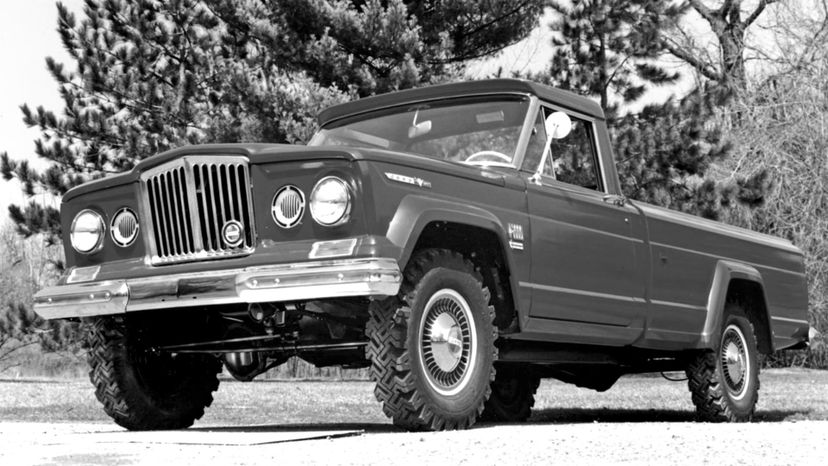
Jeep built the Gladiator pickup on the classic SJ Wagoneer platform from 1962 to 1988. In the mid-'70s, the company got fancy with trim packages - including the wood-grained Pioneer package and the Honcho model, which came with bold stripes and decals.
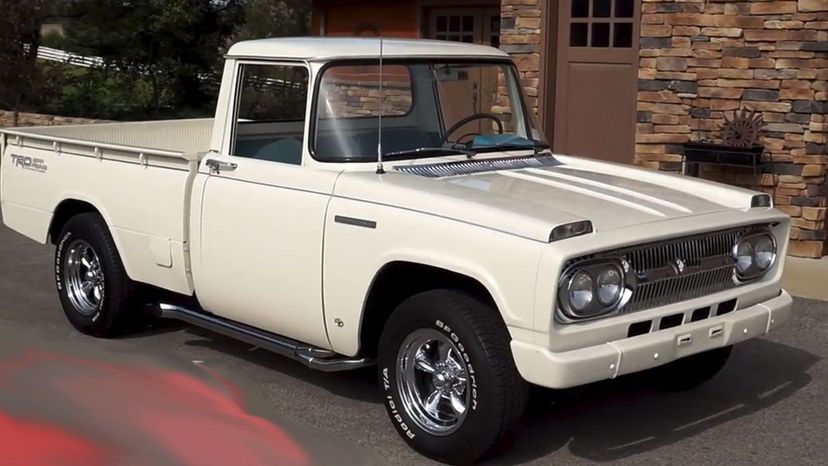
The Stout was a utilitarian-style offering from Toyota produced between 1954 and 1989. It came as a two-door three-seater in the '50s, but by 1979, had become a 1.5-ton double cab with seating for six.
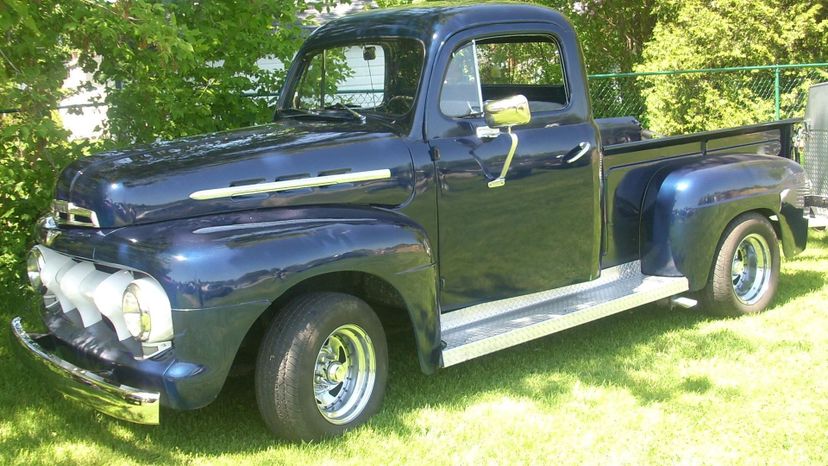
The Ford F-series has been going strong since 1947 when the first models of this iconic vehicle were introduced. The F-1 pickup was available through 1952 and was a half-ton, full-sized truck with a 6.5-foot bed. This classic truck serves as the foundation for the popular F-150 of today.
Advertisement
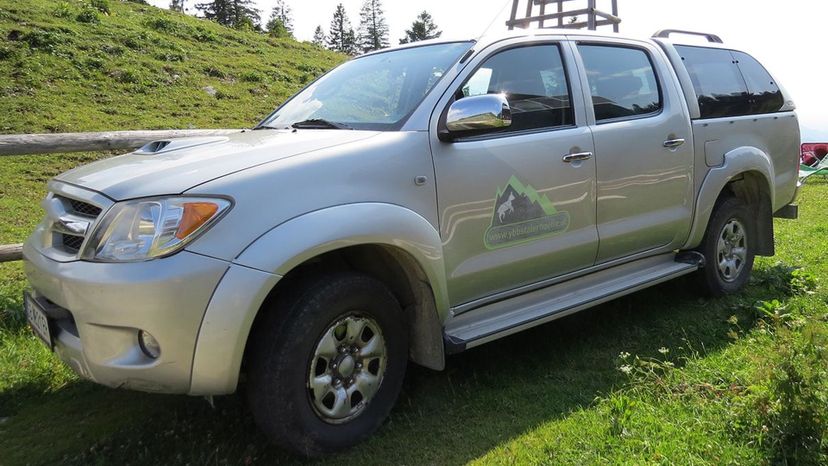
Toyota produced the popular Hilux pickup starting in 1968. While the model had been discontinued in North America in the '90s, the Hilux did have one major claim to fame - it appeared in the classic '85 flick Back to the Future.
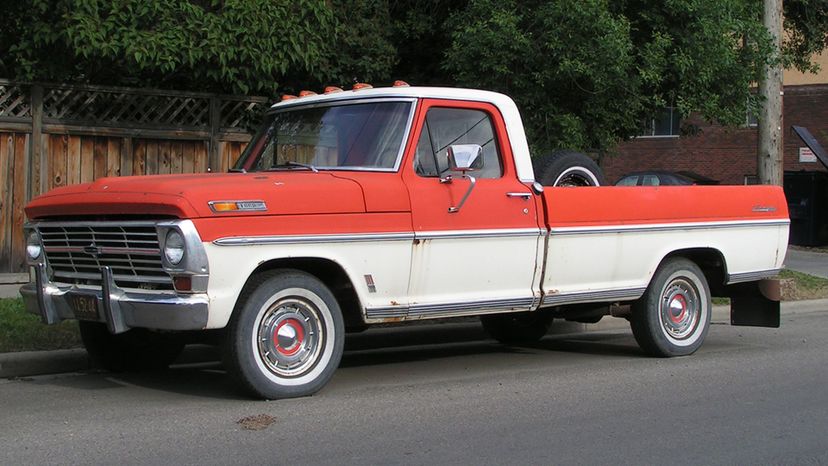
Ford has been producing the F-series since the 1940s. In 1953, the iconic F1 pickup became the F-100 half-ton truck. The introduction of the F-150 in 1975 gradually led to the end of the F-100.